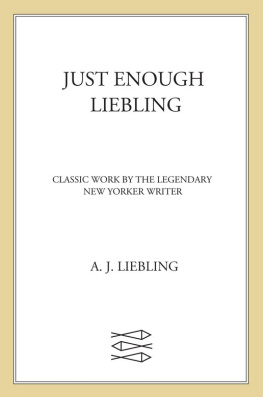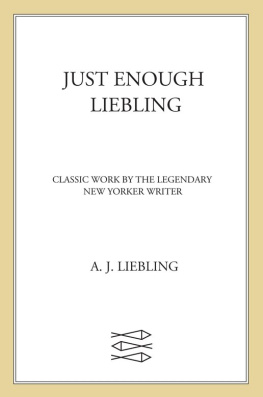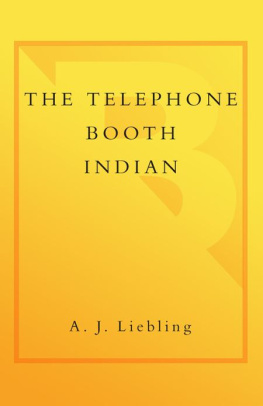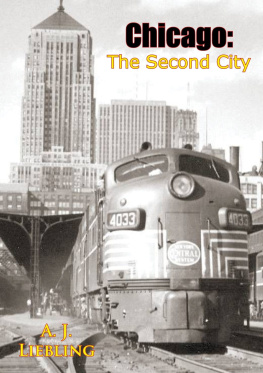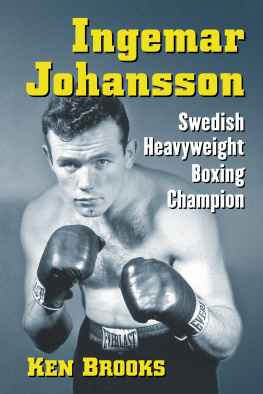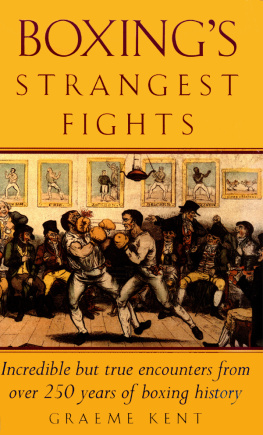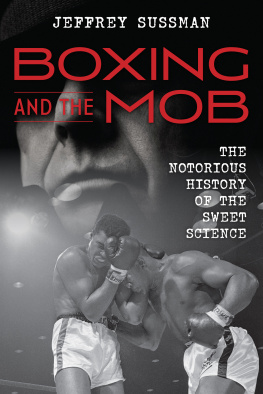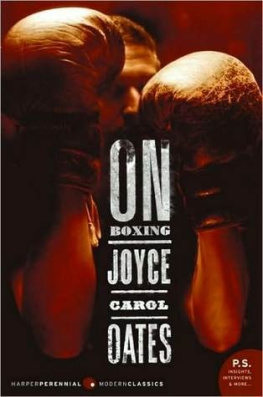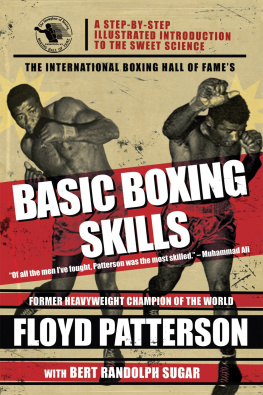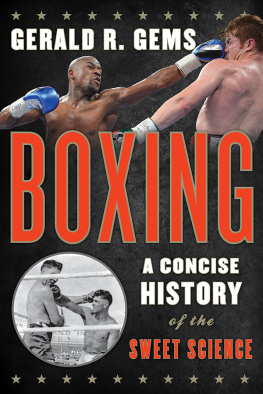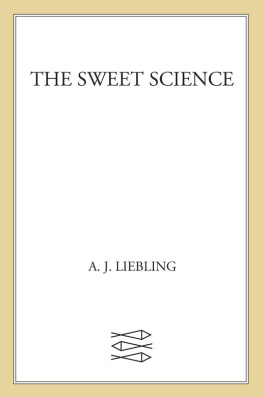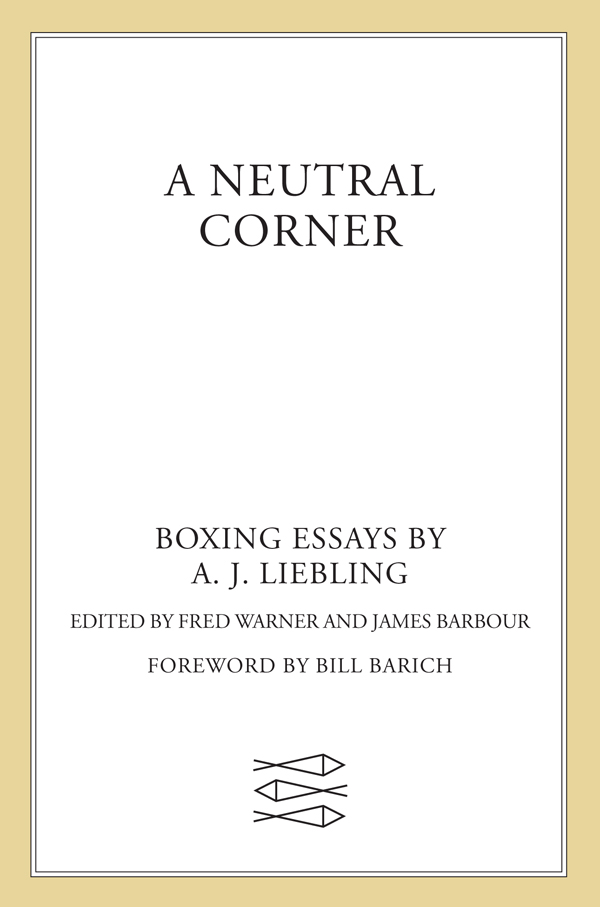Contents
Guide


The author and publisher have provided this e-book to you for your personal use only. You may not make this e-book publicly available in any way. Copyright infringement is against the law. If you believe the copy of this e-book you are reading infringes on the authors copyright, please notify the publisher at: us.macmillanusa.com/piracy.
Boxing has always been the meanest game in town, but youd never know it from reading A. J. Liebling. While reporting on our most brutal sport for our most genteel magazine, he remained implacably cheerful and wrote of his adventures among the fight crowd as merrily as a man on holiday in the south of France. There was never a hint of judgment in his pieces, no moralizing or pointing of fingers. As a veteran of what he called the newspaper sweatshops, Liebling prided himself on being unflappable, and if this kept him from making us feel the blood and pain of the ring, as other writers have done, it also saved him from waxing philosophical every time a deserving pug dropped to the canvas.
Because Liebling so enjoyed the world of boxing, he tended to paint fighters and their entourages in the best possible light. His affection for the ragged-edged scene is obviously genuine. He was at home visiting training camps and low-rent bars, happy to play pinochle or eat steak and eggs with men who did not easily convey their intelligence in words. Above all, Liebling was a realist. He understood that human nature can be bestial as well as sublime, so he never blinked when, for example, a great champion began to thumb his opponent in the eye. Quite the opposite, in facthe seems to have taken special pleasure from the way heroism and duplicity mingle in the ring.
Much has been made of Lieblings style, and its pyrotechnics are in evidence here. He applied a decorous touch to vulgar matters, drawing his references from both the classics and the local gym. His language was grand, and wit was his strong suit. He loved to inflate a sentence, then release it like a helium balloon and watch it skitter across a page. Who else would accuse Ingemar Johansson, a bon vivant who broke with training tradition to play golf and dance with his fiance, of scorning the precepts of the scholastics? As for Johanssons chances against Floyd Patterson, Liebling believed that no competent critic hesitated to select him to be annihilated. Johansson went on to win the fight, but he did lose a rematch, going down, said Liebling, like a double portion of Swedish pancakes with lingonberries and sour cream.
When it came to gastronomic asides, Liebling knew whereof he spoke, having weighed in at heavily laden tables from Brooklyn to Paris. His pieces, whether about fisticuffs or food, operated on the principle of inclusion, not exclusion, and unfolded at the leisurely pace of an evening stroll. In the broadest sense, he wrote about boxing, circling it as he might a sparring partner, eagerly alert to every intriguing sight or sound. Sometimes he appeared to be less concerned with the main event than with what happened on the way to it, and this can be annoying to a dedicated fan looking for a precise description of Archie Moores jab. For Liebling, though, to exist is to digress, and an author is entitled to interrupt the narrative flow to comment on Nigerian clothing or Tunisian cuisine.
The purpose of going to a fight isnt always to see a close contest, Liebling once claimed, and, as if to prove it, he dealt with boxing more as a subculture than as a sport, soaking up its atmosphere. He had an extraordinary fondness for boxers of all types, and spent hours listening to their excuses and their flights of fancy, sharing in the fatalistic humor that characterized their conversations. He viewed them not merely as splendid athletes but as individuals whod chosen an improbable vocation and now were stuck with it. To his credit, he never gilded a lily. Dumb pugs were dumb, and smart ones were smart. The given of prizefighting (much like the given of journalism) is that everybody gets screwed sooner or later, and Liebling accepted this as a maxim for life and greeted it with a rueful chuckle.
In reading these previously uncollected stories as a group, its surprising how similar they are to each other in construction. Their effortless quality derives from Lieblings reliance on a number of techniques he perfected over the years. As a working journalist, somebody who lived by the pen, he was perennially short of either time or money, and though he bragged that he wrote as well as anyone who wrote as fast, he must have occasionally wished for an opportunity to expand on his material. In one piece, a poignant moment occurs while Liebling is contemplating Floyd Pattersons diffident, apologetic expression. He decides that it befits the artist whose accomplishments never measured up to his own opinion of his abilities. And then he adds, as if he were giving himself a kick in the pants, This includes all artists worth a damn.
The New Yorker was an odd place for Liebling to file his dispatches, since its editors, particularly William Shawn, had a serious distaste for violence, and after his death all coverage of boxing vanished from the magazine for more than three decades. It did not surface again until a naive writer from Out Westnamely, mesuggested that an upcoming bout between Ray Boom Boom Mancini and Livingstone Bramble might make for scintillating reading. A bleeder and a Rastafarian! Mr. Shawns dismay can scarcely be imagined. Still, he let me do the piece, but he could never bring himself to run it, and it was not until his successor, Robert Gottlieb, arrived that boxing as a subject, via Mike Tysons ninety-one-second demolition of Michael Spinks, was restored to its former position of glory.
One can only hope that Liebling, with his generous, democratic spirit, would approve. He had a soft spot for boxing, and his enthusiasm for it was so infectious that he attracted readers who would have fainted at the thought of attending a match in person. His boundless curiosity illuminated many dark corners of the game, and often put its bizarre twists of fate into historical perspective. Because he did not write for the boys at the quarterlies, his prose is still fresh and alive, and the finest of his pieces have the shapely grace of chamber music. An admirer comes to the last of them reluctantly. They tap us lightly, but they leave their mark.
Bill Barich
In the history of the English prize ring, there came a day when Pierce Egan, its Thucydides, had to write, Abraham Belasco must be pronounced the only fighting Jew on the boxing list. That was in 1821. Belasco, a hundred-and-fifty-pound man, was a petty epilogue. He could give but not take punishment. The first period of Jewish prize-ring glory had begun with the rise of Dan Mendoza, in 1788. Mendoza, in Egans words, was considered one of the most elegant and scientific Pugilists in the whole race of Boxers, and might be termed a complete artist. His theoretic acquirements were great, and his practice truly extensive. This golden age had ended with the defeat of Dutch Sam by Bill Nosworthy, the baker, on December 8, 1814, eliciting from Egan this noble sentence: The abdication of Bonaparte, in its proper sphere, was not more electric than the defeat of Dutch Sam in the boxing world. Dutch Sam, returned from retirement at the age of forty-one, weighed a hundred and thirty pounds for that fight. Nosworthy, twenty-eight, weighed a hundred and fifty-four. Nevertheless, to explain the result Egan had to theorize: His [Sams] irregularities of life must have dilapidated as fine and strong a constitution as was ever possessed by man. The fight had gone but thirty-eight rounds.


